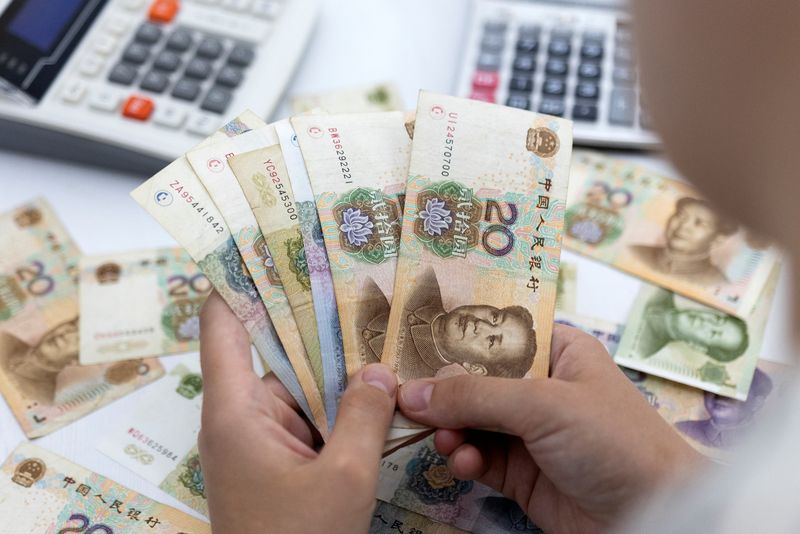SHANGHAI/BEIJING (Reuters) - Major Chinese state-owned banks sold U.S. dollars in both onshore and offshore markets in late trade on Tuesday to prop up the weakening yuan, two sources with direct knowledge of the matter told Reuters.
Such dollar selling comes as the Chinese currency is facing mounting downside pressure, with the onshore yuan hitting the weakest level since December 2007 and the value of yuan against currencies of its major trading partners at a five-month low.
The selling of dollars by state banks in early U.S. trading hours lifted the yuan, said one of the sources, noting the action took place in both onshore and offshore markets.
The other source also spotted such state bank dollar selling in the onshore market late in the Asian day.
The sources said it was unusual for the domestic branches of China's big banks to be active in onshore trades during London or New York trading hours, although they have normally dealt in the offshore yuan and used its moves to steer the onshore counterpart.
The offshore yuan has been hitting successive record lows in recent sessions, reflecting a strengthening dollar and worries over a slowing Chinese economy.
The yuan buying by state banks helped it crawl from a record low of 7.3746 per dollar to 7.3034.
The onshore yuan bounced from a low of 7.31 to retrace almost all intraday losses following the state bank actions. It opened at 7.2949 per dollar when trading resumed on Wednesday and last changed hands at 7.2971 at 0229 GMT.
State banks in China usually trade on behalf of the People's Bank of China in the foreign exchange market, but they could trade on their own behalf or execute orders for their corporate clients.

Chinese regulators have been busy rolling out measures to stem fast yuan depreciation. They raised a parameter on cross-border corporate financing to make it easier for domestic firms to raise funds from overseas markets on Tuesday.
And sources told Reuters that the FX regulator had asked them about their positioning in the currency market.